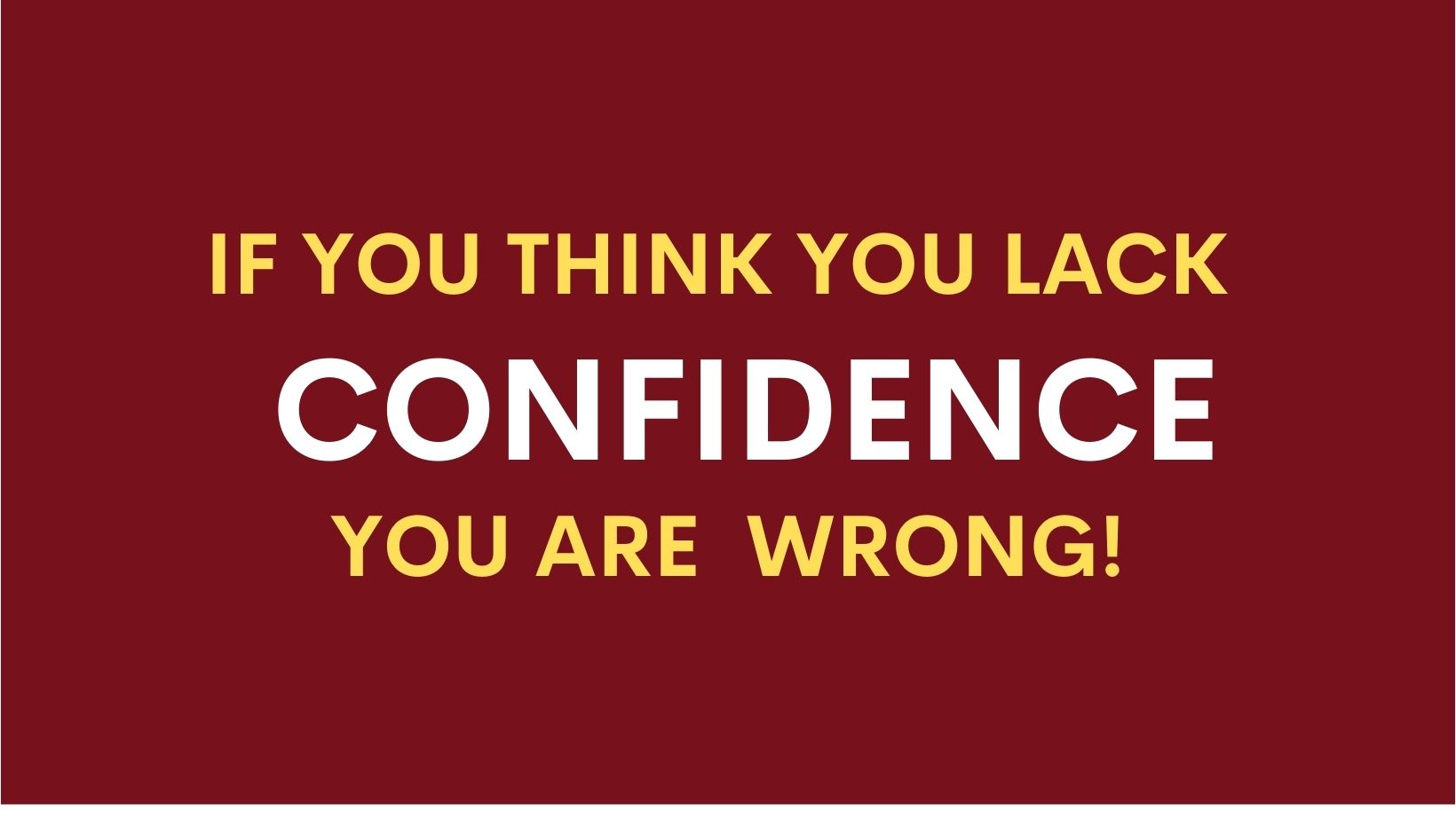I was recently sent an email by someone who told me that they needed more confidence in themselves.
My reply (below) may be of interest to you if you believe that you have a lack of confidence or if you know someone who believes that they lack confidence.
“Hi [Name withheld]
You should have been more confident in yourself as you performed very well on the course and your written coursework was excellent, way higher than the standard required.
It is interesting to notice however, that you feel that you have had a lack of confidence in your ability.
So, I’d like to give you a bit of advice if I may?
You don’t have a lack of confidence.
You just were not ‘confident’ (and there’s a difference between ‘confidence’ and being or not being ‘confident’, which I will explain moving forwards to put things into their correct perspective for you).
In NLP (Neuro Linguistic Programming) the word ‘confidence’ is referred to as a ‘nomiliazation’, which means that what you are referring to is the linguistic representation of a ‘process’ meaning that (in this case) a lack of ‘confidence’ is an ongoing issue.
Therefore, the word ‘confidence’ when used in the context of what you sent me in your email implies that you lack confidence in everything you do, but that is simply not the case at all.
You may not be ‘confident’ in certain situations or when doing certain things, especially if you are doing them for the first time.
But the more you do stuff the more ‘confident’ you become at it.
Think about this. You have raised a child (and there is no manual on how to do that). Therefore, you will have been at times not ‘confident’ in dealing with certain situations as a parent, but you dealt with them anyway and became more ‘confident’ the more you did what you had to do.
You also run a social enterprise initiative to help victims of domestic abuse. I bet you that there were times when you were not ‘confident’ in knowing what to do, but you went ahead and did it anyway and when you did you became more ‘confident’ in your ability to deal with such situations when they arose again.
The other thing is that when you do something for the greater good for someone or something you love, you automatically and naturally become ‘confident’ in your ability because the need to help others far any ‘confident’ issues.
Can you remember the first time you learned to drive? How ‘confident’ were you then? Not much I’d imagine. But you became more ‘confident’ the more you did it.
And notice that I don’t use the word ‘confidence’. I use the noun ‘confident’. This is because you will be ‘confident’ in many things that you do, but may not be 100% ‘confident’ in something you haven’t done before, and that’s absolutely natural. But the more you do it the more ‘confident’ you become.
There are so many people who believe that they lack ‘confidence’, which stops them from doing something that they would really love to do because they believe that they have a ‘process issue’, which really all they have is a one-time situational issue that is (generally speaking) due to the fact that they have never done what they want to do before.
In your email you have stated that your “confidence has improved a lot”. But to be completely accurate here it’s not that your “confidence has improved a lot”. It is the fact that you have become more ‘confident’ in your ability to do certain things now, i.e, teach self-defence and personal safety.
Don’t doubt your ability. You don’t and have never lacked ‘confidence’. That is what we (in NLP) would refer to as a ‘deep language structure’ which is an over-generalisation of a single moment in time into an ongoing process, which should be challenged and that’s what you will be doing from now on moving forward.
So, the next time you think about or speak to someone about ‘confidence’, stop and take a minute to realise that you are not talking about an ongoing process. You are referring to a moment in time when you possibly may have not been ‘confident’ in doing something because you hadn’t done it before. That’s it.
And when you are teaching, if someone says they lack ‘confidence’ you now know how to address that!
I hope that helps!”
And if you are interested in attending our next BTEC Level 3 Self-Defence Instructor Award Course to help you realise this even more check out the webpage here – https://nfps.info/btec-level-3-self-defence-trainer/

